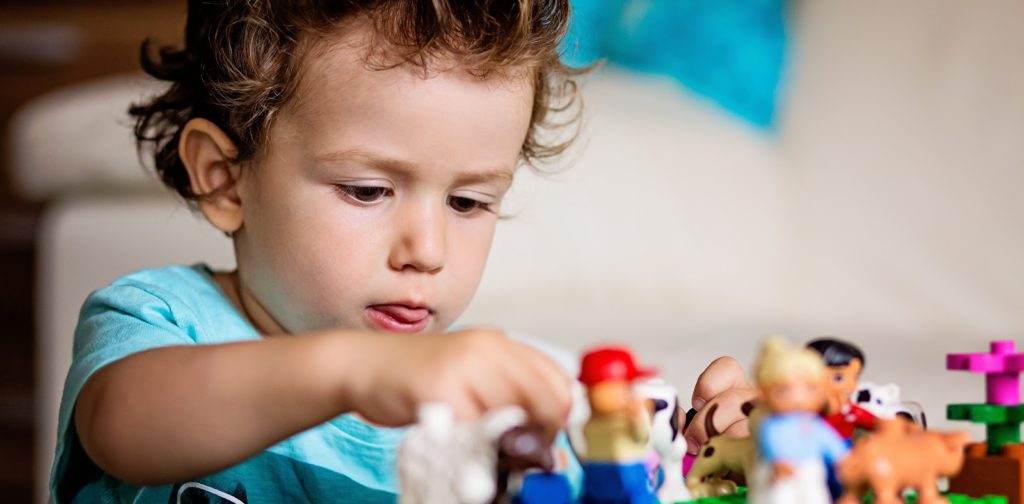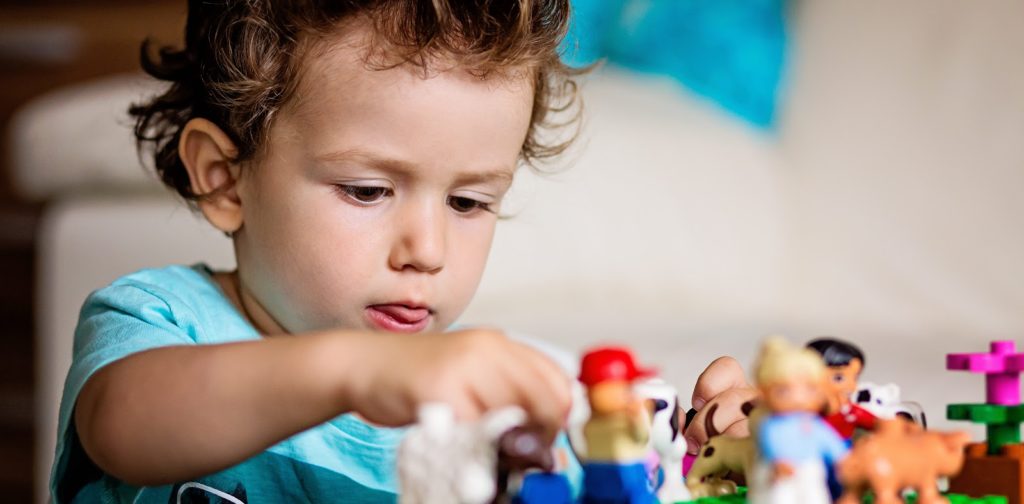Childhood should be a happy time. Far too often, though, it isn’t. Mental and emotional illness can have a severe impact on a child’s development, leading to ingrained issues that could last a lifetime if left untreated. With care, compassion and treatment, a childhood with significant trauma can be transformed into triumph as a child once again enjoys a carefree existence of discovery and learning in a loving environment.

Child therapists specialize in treating children typically under the age of 17 with behavioral, emotional, or mental disorders. These professionals may work in a public school system, a clinical setting, as part of a medical team, government agency, or in private practice.
Therapists typically work with children to help them become mentally and emotionally stable and happy. Some child therapists focus on certain areas, such as attention-deficit hyperactivity disorder, abuse, or depression.
Because very young children cannot always express themselves fully or explain what is going on inside, child therapists often try “play therapy” as a means of drawing out the child. With play therapy, a child engages in an enjoyable activity while the therapist observes. As children engage in the activity they may begin to reveal emotions, express feelings and say what’s on their mind. Child therapists use these insights to assess, diagnose, and develop treatment plans.
To be successful in treating children with mental and emotional disorders, a child therapist must have open communication with the child’s caregivers, whether parents or legal guardians. Here, your role is to explain to caregivers what to expect during therapy and recovery as well as offer suggestions on what they should watch for and how they can help. You’ll enjoy tremendous professional satisfaction and an above-average income when you become a child therapist.
When you choose to become a child therapist you are making a commitment to improving young lives, to bringing joy back into children’s spirits, and to restoring peace within families. You are helping people at the most impressionable ages achieve normalcy in their lives. You help children find and hold onto their self-confidence. You help repair the past and fix the present so the child can enjoy the future. Few career paths are more fulfilling and impactful on individual clients and society as a whole.
Here’s what you’ll learn in this chapter on becoming a Child Therapist:
- How Much Can You Make
- Training and Certifications
- Professional Groups to Join
- Career Options for Child Therapists
- Finding Clients
- Helpful Tips for New Child Therapists
How Much Can You Make?
The average annual salary for a child therapist is currently $69,248. Therapists with an established private practice can make much more. An income of more than $200,000 a year is not uncommon for a child therapist with 7-10 years of experience. Those at the higher end of the pay range tend to have doctoral degrees in psychiatry, while a therapist can practice in most states with a master’s degree.

In terms of actual work, there is little difference between a child therapist and a child psychiatrist, the main distinction being that a psychiatrist can prescribe medication. A therapist cannot.
The U.S. Bureau of Labor Statistics estimates that about a third of licensed psychologists were in private practice, including child therapists. In these private-practice settings, children receive treatment on an outpatient basis.
Therapists can also work for public or private healthcare facilities, such as a pediatrician’s office.
Job opportunities for child therapists are expected to increase 14 percent through 2028, according to the Bureau of Labor Statistics.
Training and Certifications
A bachelor’s degree in psychology or a related field is the standard prerequisite for pursuing training as a child therapist. All states require practitioners to hold at least the minimum of a master’s degree and pass a state-certified exam to get licensed as a child therapist. Check the requirements for your state before choosing a program of study.
What you’ll learn:
- Principles of child psychology
- Therapy techniques when working with children
- Recognizing and diagnosing different learning disabilities
- Diagnosing social disorders
- Evaluating emotional problems
- Developing effective treatment plans
- Communicating with children
- Communicating with caregivers

Professional Groups to Join
Stay informed about new developments in the field and build a network of connections with fellow professionals by joining one or more of these organizations:
American Academy of Child and Adolescent Psychiatry (AACAP)
The AACAP promotes the positive and healthy development of people from infancy to adulthood. Access to ongoing education, conferences, liability insurance coverage and a listing on the academy’s directory of professionals are just some of the membership benefits.
American Psychiatric Association (APA)
More than 37,000 APA members are devoted to psychiatric research, ethical standards in clinical practice, and providing ongoing education opportunities and other services to members.
American Psychological Association (APA)
Similar to the American Psychiatric Association, this organization of 115,000 members offers professional conferences, reports, discussions and publications.
Your network and access to resources in the field will expand through membership in one of the many professional industry associations. Connecting with other experts in the field is crucial to your own growth and continuing professional education.
Career Options
Child therapists can find jobs within public school systems, private schools, public health clinics and working with a team of therapists in a private practice or offering therapy as an individual private practitioner.

Leverage your membership in professional organizations by networking with other therapists to learn about job opportunities.
Finding Clients
Network with other members of your professional organizations to ask about job openings.
Many professional organizations maintain an online directory for caregivers to find a child therapist. Get your business added to the list.
Contact other professionals in your community to let them know you’re available for referrals. Clergy, doctors, and even other therapists are good sources for referrals.
See Chapters 1 through 4 for other channels to find clients.
Helpful Hints for New Child Therapists
According to Positive Psychology, parents and guardians often ask whether a child really needs therapy, whether treatment can do any good and what signs to look for in a child who may be a good candidate for therapy.
These symptoms and behaviors in children may indicate a problem that therapy can help with or correct:
- Unwarranted aggression
- Incontinence
- Difficulty adjusting to social situations
- Frequent nightmare and sleep difficulties
- A sudden drop in grades at school
- Persistent worry and anxiety
- Withdrawing from activities they normally enjoy
- Loss of appetite or dramatic weight loss/gain
- Performing obsessive routines like hand washing
- Expressing thoughts of suicide
- Talking about voices they hear in their head
- Social isolation and wanting to be alone
- Alcohol or drug use
- Increased physical complaints despite a normal, healthy physician’s report
- Self-harm such as cutting
- Persistent feelings of sadness or hopelessness
- Constant anger and a tendency to overreact
- Preoccupation with physical illness or personal appearance
- An inability to concentrate, think clearly or make decisions
- An inability to sit still
- Diets or binging behavior
- Violent acts such as setting fires or killing animals
The American Academy of Child & Adolescent Psychiatry suggests therapists should be prepared to answer these questions from caregivers:
- Why is psychotherapy being recommended?
- What results can I expect?
- How long will my child be involved in therapy?
- How frequently will the therapist see my child?
- Will the therapist be meeting with just my child or with the entire family?
- How much will sessions cost?
- How will we (caregivers) be informed about our child’s progress and how can we help?
- How soon can we expect to see some changes?





